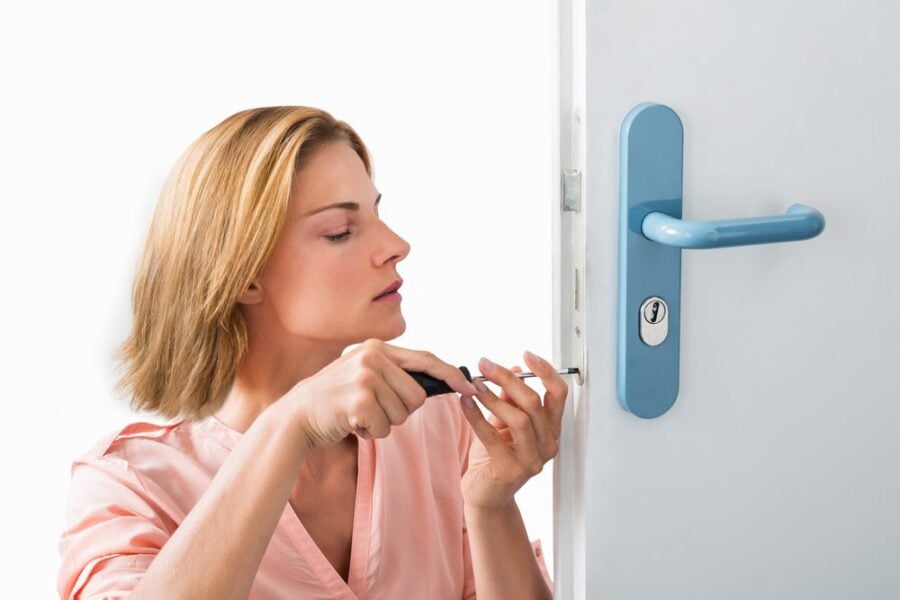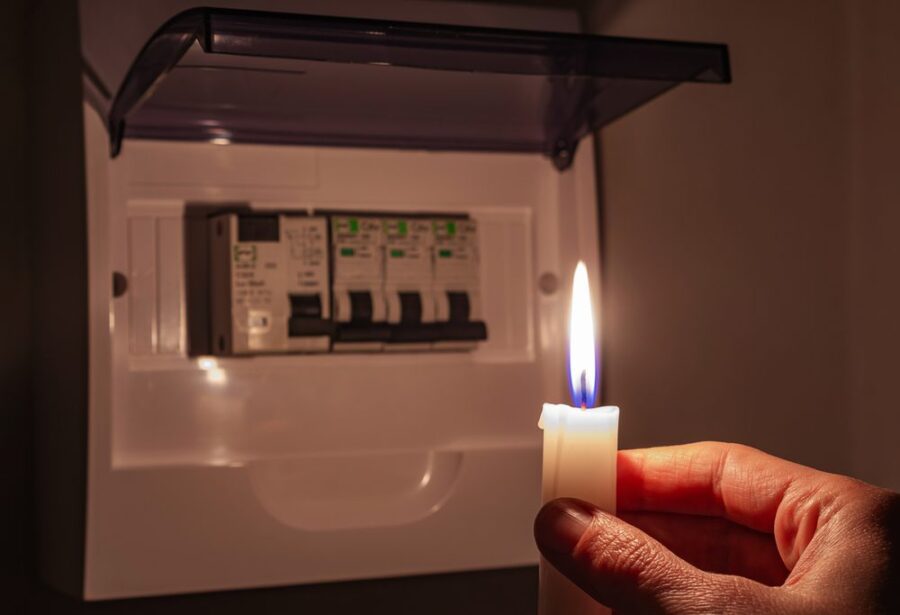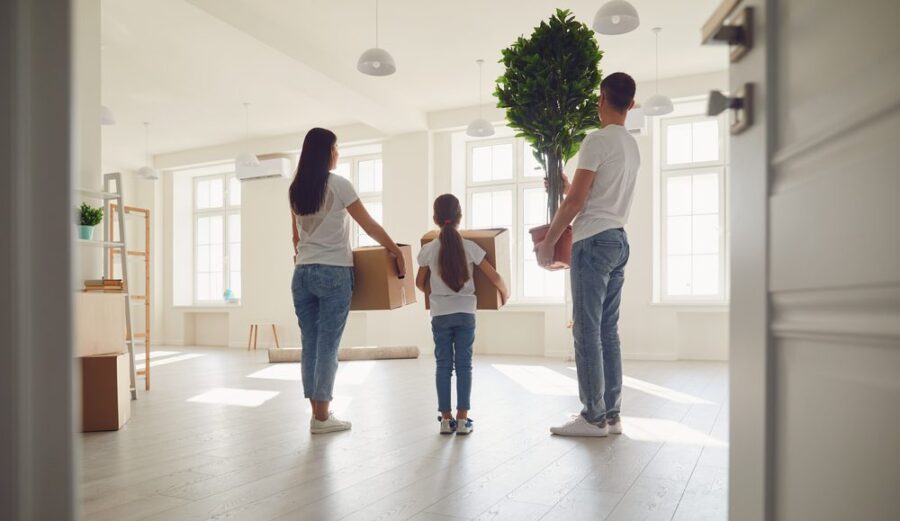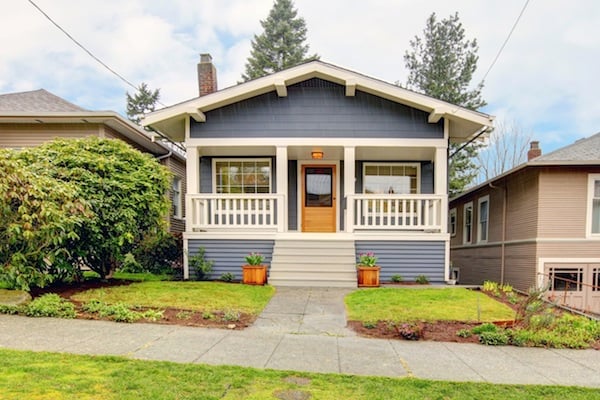So, you’ve found a new home. CONGRATULATIONS!
Buying a new home is such a big, fun step… not to mention, a relief! By now you’ve been through shopping the market, arranging viewings, making an offer, waiting on pins and needles for an answer, inspection, and signing on the dotted line. Now it’s time to celebrate!

Of course, the practicalities aren’t behind you once you’ve closed on your new home. You may be daydreaming about morning coffee in your new kitchen and nights out in your new neighborhood.
Don’t forget to sort and pack while you’re fantasizing.
All of the basics like downsizing, packing, and hiring a mover may be on your list. That’s a great start! There are also a few things you should do in your new home before the mover starts loading your stuff in. Once you’ve closed on your house, here are a few things to make sure you don’t overlook.
Have a Look Around
The best time for a walkthrough is before moving day arrives. Hopefully, you have a day in your new home before the rush of moving in so you can walk through your place and have a look around. If not, try to do it before unloading the moving truck.
Your check should include:
- Any repairs, updates, or other work you and the previous owner agreed would be handled before moving in
- Anything that was agreed upon as part of the sale is included, such as appliances or furniture
- Ensuring everything works including power outlets, fixtures, and switches
It’s best to do a walkthrough as early as possible. If you find any discrepancies between the contract and what you find, call your realtor immediately. If you find issues that we’re covered in your contract, you’ll have to chalk it up to a lesson learned, unfortunately.
Secure Your Entries
One of the most important things to do when moving into a new home is to ensure it’s secure. To increase your personal security and that of your belongings, change the locks on the doors and any codes to gates, the garage door, or the security system.

Ensure you have all instruction manuals for electronic systems and that you understand how to navigate them. Depending on the complexity of your locks (and your proficiency with handiwork, of course) you may need to call a locksmith to help you make these changes. Changing the codes for your garage door shouldn’t cost anything. The home security system will require you to establish a new account whether you reconnect or choose a new provider.
Set Up Utilities
To ensure a smooth transition into your new home (and a hot shower after you arrive!), set up your utilities before moving in. If you’re coming from apartment living, you may be used to the ease of setting up utilities in your unit. It can take a little more to connect your utilities in your own home, so chat with your chosen providers ahead of time to ensure you’ve provided all you need to get established.
There’s a chance they’ll need to come out to connect your service, so don’t save this step until the last minute. You might not get into their busy schedule when you would like!
Check Water, Electric, and Gas Points and Check Detectors
Chances are when you need to find the circuit breaker or water main, you need to find it now. Do yourself a favor and don’t wait until you need them. Look for the emergency shut-offs and circuit breaker before or immediately after moving in.
When it comes to the circuit breaker, open it up to have a look. Are there labels for each of the circuits? If not, grab a roll of masking tape and a pen and get marking. It’s important to know which circuit belongs to which room and appliance.

Collect all of your appliance paperwork, manuals, and warranty info and keep it safely in one place. If the previous owners left appliances without manuals, have no fear. You can find most of them online and can easily print new copies.
While you’re at it, this is also a good time to check your smoke and carbon monoxide detectors. Make sure they’re in good working order and replace batteries where needed. Not only will you keep your home and family safe, but you’ll also know where to find each detector early on.
Check your kitchen and laundry room for smoke detectors. If there isn’t one there, get one installed. These two rooms are frequent sources of fires. Make sure you have at least one smoke detector on each floor of your home.
Get Insurance
Many times, a buyer receives a home warranty to cover major appliances or systems for a certain period of time. If you received a warranty, review the details to ensure you understand what’s covered and until when. It’s helpful to know in case you have an opportunity to file a claim.
Home warranties don’t last forever, and they’re not a replacement for insurance. Make sure you get homeowners insurance to protect your belongings. We all want to believe in the best-case scenario, but sometimes things happen. Make sure you’re protected, just in case.
Update Your Address
Our advice is always to start updating your address well before you move. That means setting up mail forwarding at the Post Office, for starters. You can file for a change of address online these days – no more waiting in endless lines to fill out a form at the office itself!
Updating your address with USPS will help ensure things don’t get missed, but don’t consider it a one-and-done step. You’ll also need to update your bank, loan and credit card providers, social security, medicare, and Medicaid offices, your employer, the cell phone company, and of course, friends and family.
Deep Clean
Nothing says “welcome home” like a shiny, clean space ready for you to settle into. Take a moment to give a deep clean to your new home. Don’t have the time or energy for it? Consider hiring a professional to come through and get everything ready for you.
Fresh paint also has a clean feeling, so consider whether you’d like to refresh some or all of the paint inside your new home. It’s harder to paint once all of your things are inside, of course, so this is often the perfect time to spruce up the walls.
Child/Pet Protect
If you have children or pets, you’ll want to ensure they have a smooth and comfortable transition into your new home as well. Chances are, it will take you a while to get settled in your home, so plan ahead of time for the extra things that may be lying around. Create a kid-free (that includes two- and four-legged ones) area where you can collect things like tools and packing materials safely.

Walk around your house with the eyes of your dependents. Check that any low windows can’t be easily accessed, spare cords (electrical and those attached to blinds or curtains) aren’t dangling, and any shelves and appliances are secured.
Move In and Unpack
Once you’ve gone through your house, learned the layout, crucial bits, and have it prepped for arrival, it’s time to coordinate your move-in date. Hiring a mover is the best way to ensure a smooth move. The experts will not simply save you a lot of sweat (though there’s that, too). They’ll be able to move you in a fraction of the time you would do yourself, allowing you to focus on other things.
Don’t feel like packing? Full-service moving companies can even pack and unpack for you. That’s another major thing crossed off the list!
Say “Hi” to the Neighbors
Welcome to the neighborhood!
Don’t wait for everyone else to roll out the red carpet. It’s a lot easier to introduce yourself when you arrive. Many times, people don’t want to intrude and will give the newbies on the block a chance to get settled. Then, life happens, and time goes by. Before you know it, six months have passed and it’s a bit awkward to start making introductions out of the blue.
Take advantage of timing and introduce yourself to the neighbors. Not only will you meet the people who live around you, but you can also learn a few things about your new community. Having local connections means you’ll also have someone to ask if you need to hire a professional or have an issue. No need to get dressed up and knock on all of their doors like you’re on the campaign trail. Just do your best to say your hellos and make introductions when you cross paths with your neighbors.








